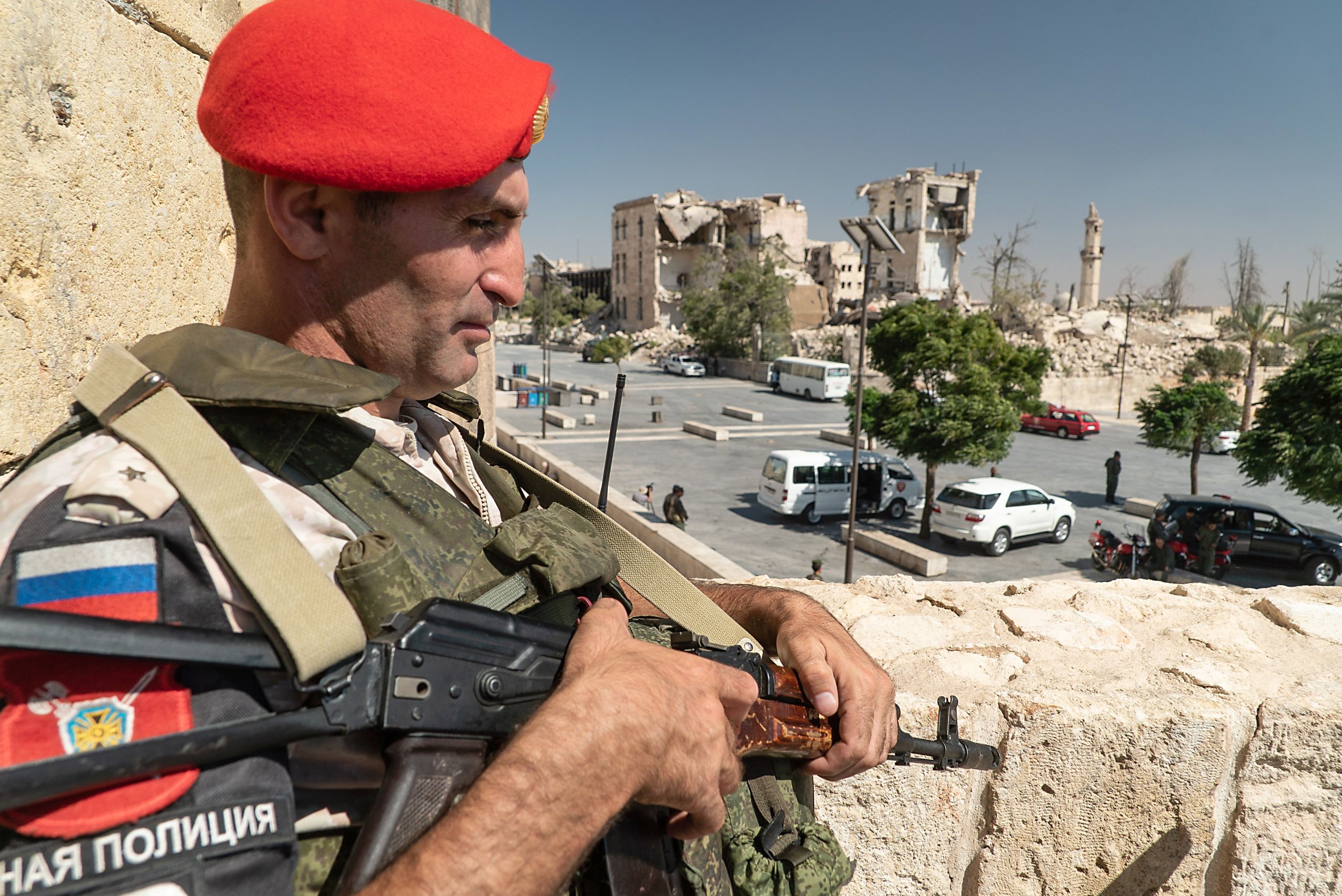
Russian lawmakers are poised to introduce a new law preventing soldiers from posting information on the internet, in a move designed to avoid details of foreign deployments becoming public.
On Tuesday, the parliament approved the second of three readings of the legislation, Reuters reported. The ban would cover photographs, video, geolocation data and other information that might compromise the positions of military units or shed light on their activities.
The new law will also prevent troops from sharing information about fellow soldiers or any of their relatives. Anyone breaking the ban would be subject to disciplinary measures. The bill, if passed, would formally legislate military recommendations issued to troops in 2017, according to pro-Kremlin newspaper Izvestia.
If the lower house approves the bill for the third time, it will then be sent to the Senate for approval. If successful, it will pass to President Vladimir Putin for final approval.
A note explaining the need for the bill read: "Information shared by soldiers on the internet or mass media is used...in certain cases to form a biased assessment of Russia's state policy."
Numerous media organizations have used social media posts and other open source data to investigate the deployment of Russian soldiers to conflicts in Ukraine, Syria and Africa. Investigative journalism site Bellingcat, for example, used a wide range of open source data—including social media posts—in its report on Russian involvement in the shooting down of Malaysian Airways flight MH17 over Ukraine in 2014.
Though Moscow has repeatedly denied involvement in the tragedy, a Dutch investigation concluded that the plane was destroyed—and 298 people killed—by a surface-to-air missile belonging to the 53rd brigade of the Russian army.
Other journalists used social media posts and geolocation tags in photos and videos to prove Russia's military presence in eastern Ukraine, even before Moscow admitted it had sent forces to support separatist militias there.
Similar investigations also shed light on the deployment of Russians to Syria, both as part of conventional military units and mercenaries via the Wagner Group. The company came to prominence when hundreds of Russians were reportedly killed in a clash with U.S. troops in eastern Syria in February 2018 while working for Wagner. Social media posts helped journalists estimate casualty figures and glean information on Wagner activities in the country.
Social media posts have also assisted journalists covering Wagner's newest frontiers, for example in the Central African Republic (CAR). An article by The Atlantic found that Wanger's new-found fame has resulted in a spike of activity on some social media pages dedicated to discussion of the firm, as its ranks swelled and contracts expanded.
Uncommon Knowledge
Newsweek is committed to challenging conventional wisdom and finding connections in the search for common ground.
Newsweek is committed to challenging conventional wisdom and finding connections in the search for common ground.
About the writer
David Brennan is Newsweek's Diplomatic Correspondent covering world politics and conflicts from London with a focus on NATO, the European ... Read more
To read how Newsweek uses AI as a newsroom tool, Click here.








